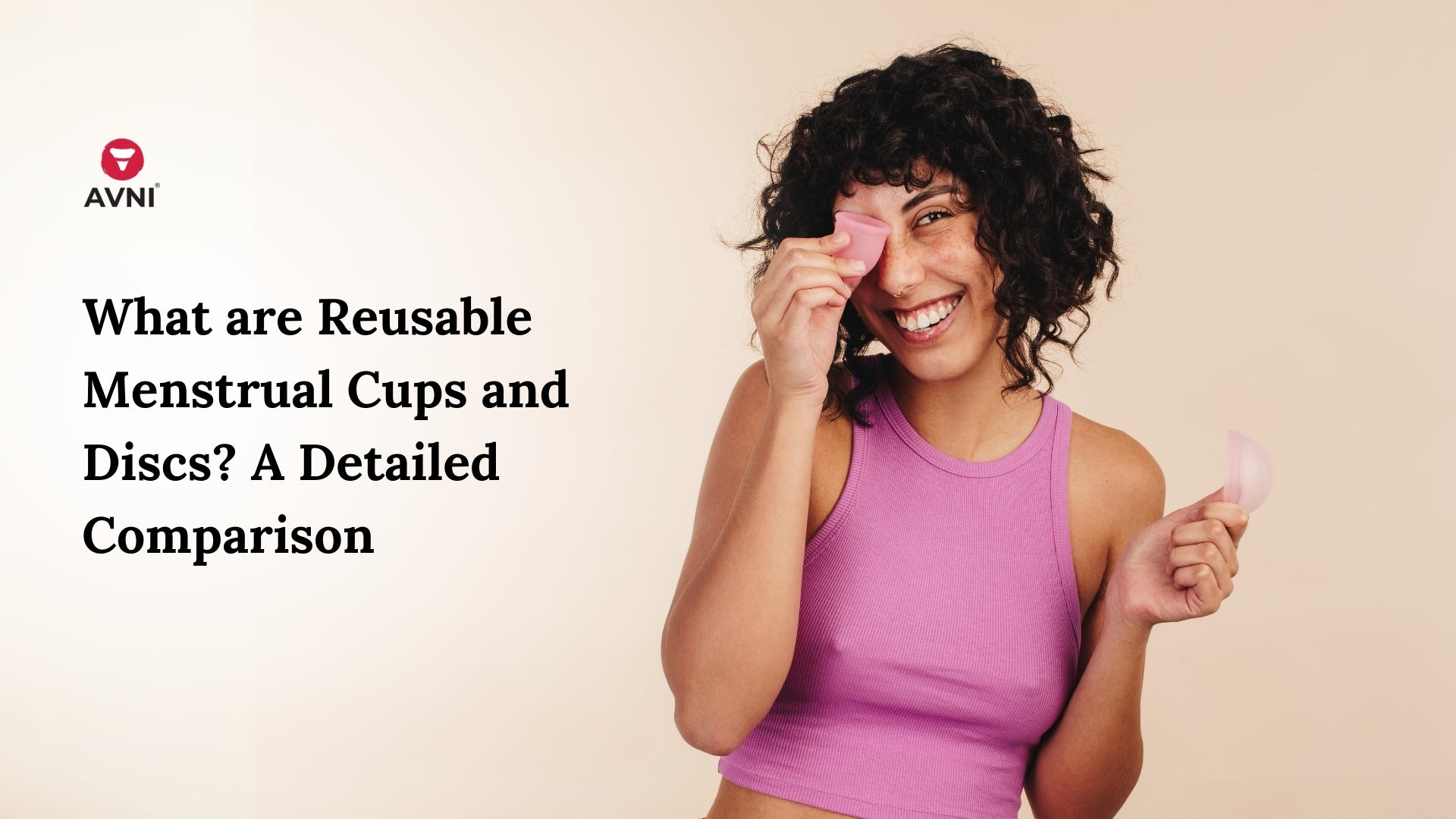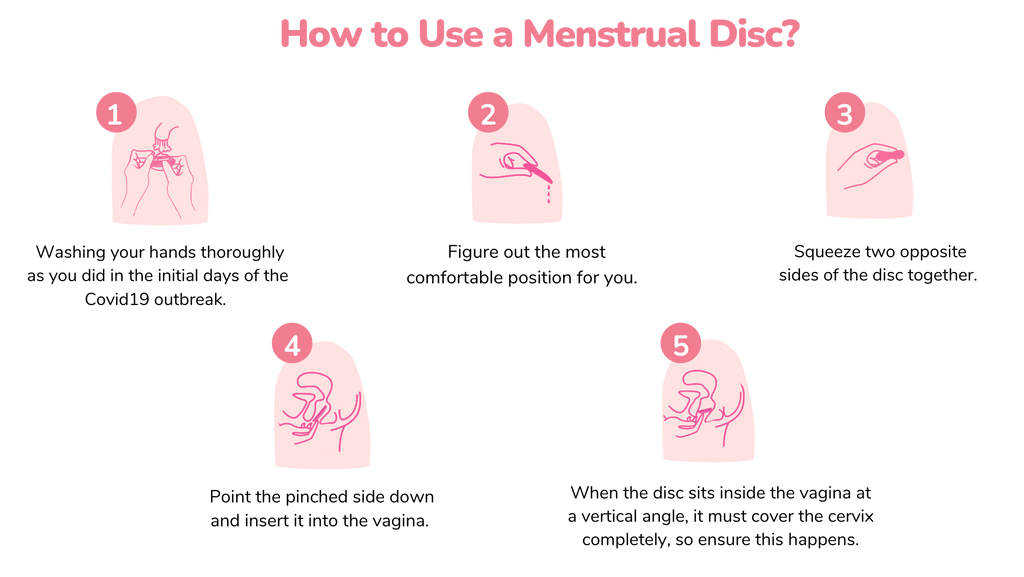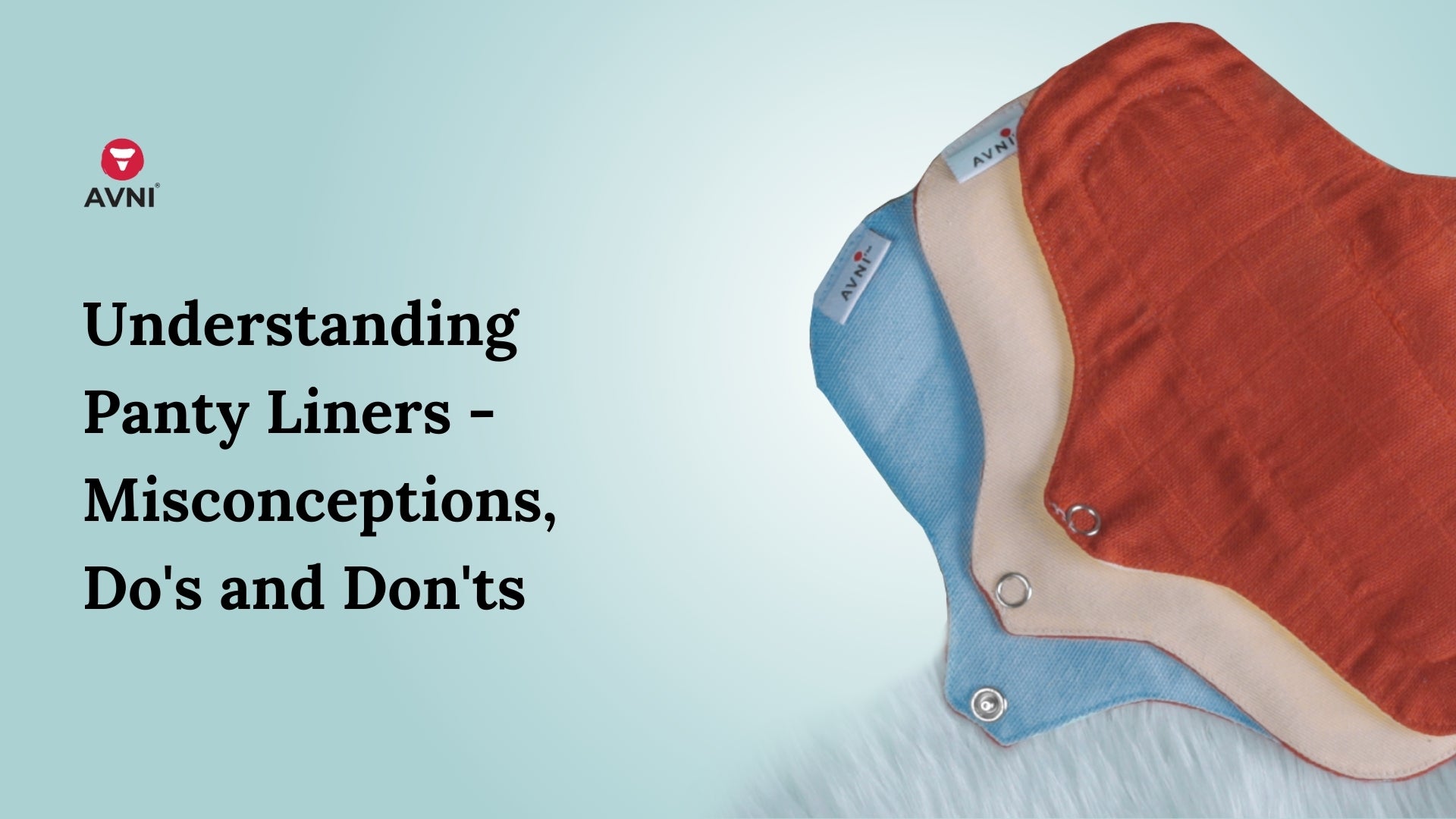
What are Reusable Menstrual Cups and Discs? A Detailed Comparison
Using sustainable period products is in rage which includes the much coveted option of menstrual cups. Reusable menstrual cups are a boon for those looking for comfortable periods, which is basically everybody! Adding to the list is a slightly different version of the cup, that is the reusable menstrual disc. The shape is not the only difference between these two reusable menstrual products.

Avoiding the hassles of chafing while wearing a pad, the uncomfortable semi slide of the tampon, and other drawbacks caused by traditional menstrual products, cups, and discs are here for the rescue.
Right off the bat, the only similarity between a menstrual cup and a disc is that they sit at the end of the cervix, collecting the period blood without letting it flow out.
Everything else about these two genius inventions is different and we’re gonna take a deep dive into learning fundamentally everything about them.
What is a Menstrual Disc?
A menstrual disc is a circular period protection product that is used to contain the period within the vulva. Unlike pads, tampons, and others that soak the blood, menstrual discs collect the blood just like a menstrual cup.
Sitting at the base of the cervix, the disc has a distinctive and wonderful advantage over the cup.
While a menstrual cup covers the opening of the vagina while worn, a disc sits at the base of the cervix. This strategical position allows the wearer to engage in sexual activities as they would while not on their periods.
A word of advice: Empty the disc before sex to ensure a mess-free sexual experience.
Menstrual discs are mostly made disposable but more & more brands are offering reusable discs that last for years.
How to Use a Menstrual Disc?
Using a menstrual disc for the first few times may be a hassle and many find it cumbersome.
Once you manage to learn and stick to the process, discs are more comfortable than other menstrual products and you barely feel them.
Here’s how to use a menstrual disc:
- Hygiene is the most important facet when it comes to anything ‘menstruation’ so start by washing your hands thoroughly as you did in the initial days of the Covid19 outbreak.
- Figure out the most comfortable position for you. Some people squat, some sit over the toilet, and some try standing upright with one leg up on a stool.
- Remember that the disc needs to become as small as a tampon so the next step is to squeeze two opposite sides of the disc together.
- Point the pinched side down and insert it into the vagina.
- When the disc sits inside the vagina at a vertical angle, it must cover the cervix completely, so ensure this happens.

Reasons to Opt for a Menstrual Disc
While the reasons to opt for a menstrual disc are aplenty, make sure you go for the reusable kind as it could last you many years, avoiding significant pollution.
- Menstrual discs can be worn during sex but must be emptied & cleaned before use. Remember that a menstrual disc does not act as contraception at any given point so opt for a condom instead even during your period.
- Tampons, napkins, and cloth pads inherently make your vagina & vulva dry, and menstrual discs avoid this. Maintaining the pH value of the vagina is crucial and as discs avoid dryness, the pH is maintained.
- A menstrual disc is sustainable so you are avoiding nearly 3kgs of waste from adding to landfills.
- Depending on the size and the flow, a menstrual disc can be worn for around 12 hours which is longer than any tampon or napkin.
- A menstrual disc is comfortable while worn and you may even wear it to the beach, gym, and even while sleeping.
What is a Menstrual Cup?
A menstrual cup on the other hand has been around for quite some time. A reusable feminine hygiene product that makes the lives of millions of women easier, it is the best alternative to cloth pads, napkins, and other menstrual products.
A flexible cup that is often made of silicone or rubber, a menstrual cup seal within the vagina, and contains the period discharge within.
Available in various sizes for different flows and age groups, a menstrual cup can be worn for more than 12 hours in some cases and is one of the most eco friendly period-related products in the market.
How to Use a Menstrual Cup?
Although the menstrual cup is for women of all ages, younger women who haven’t had sex yet may have to go through a phase of trial & error. During the early stages, younger women may try smaller size menstrual cups to start with.
Here are the steps to inserting a menstrual cup:
- The hygiene element remains the same for menstrual cups as well so wash your hands thoroughly.
- Apply lube, water, or dampen the rim of the menstrual cup.
- Press & fold the rim of the cup and the cup itself in half.
- With the folded rim facing upward, insert it into your vagina.
- Make sure it sits a couple of inches below your cervix.
- Rotate the cup gently once it is in the vagina which will open it up, creating a tight seal.
If the cup is inserted properly, you must not really feel it after a few minutes and must be able to do things like sit, run, sleep, and everything else effortlessly. Consult a doctor if you are finding it hard to insert a menstrual cup, or try a different size.
Reasons to Opt for a Menstrual Cup
- A menstrual cup is extremely affordable and makes financial sense.
- Doesn’t dry up the vagina like a tampon but maintains the right pH value.
- A menstrual cup can hold more period discharge than tampons or napkins.
- Sustainable and environmentally friendly.
- Eliminates odor that’s associated with tampons and pads.
- Can be used for around 12 hours at a stretch.
The Comparison

Final Takeaway
Choosing between menstrual cups and menstrual is more of a lifestyle choice than any other compelling cause. Based on your comfort level, sexual activities, and of course, preference, you can make your choice.
The good thing about either of the menstrual products is that they are long lasting, sustainable, and cost-efficient. Therefore, whatever you pick, you can be assured of a comfortable experience.
In case of confusions and doubts, always talk to your doctor and get the right advice



Leave a comment
This site is protected by hCaptcha and the hCaptcha Privacy Policy and Terms of Service apply.